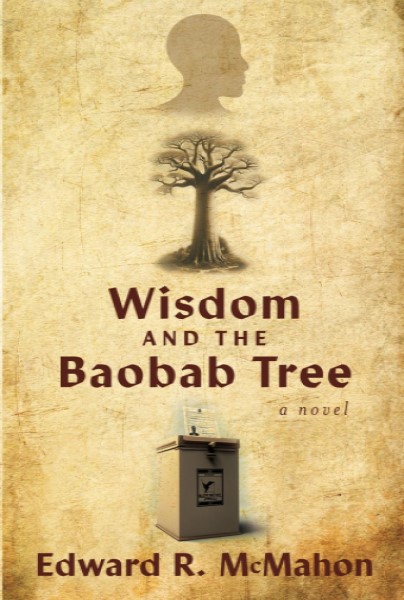Reviewed by Daniel Ryan Johnson
Wisdom and the Baobab Tree is a story set in a foreign context that manages to hit close to home for readers in the United States, as well as readers throughout various other parts of the world. Set in the fictional African country of Kombonia, the book explores the struggle of a country to fully embrace democracy. While the nation has been a democracy in name for a few decades when the book begins, true democratic elections have never taken place. Purchase Here.
Much of the story is told through the eyes of American Adam Edwards, who is in the country working for the Center for Democratic Progress, an independent organization with funding from the U.S. government. The purpose of his mission in Kombonia is to help ensure the elections coming at the end of the year are fair and democratic. He is tasked with sharing the knowledge gained by the U.S. and other nations in their experience with democracy to help create a framework for a true democracy to succeed in Kombonia.
While Wisdom and the Baobab Tree portrays a nation that is just beginning its democratic journey, many of the challenges this fledgling democracy faces reflect issues present in U.S. politics, as well as other nations with a long democratic history. Political violence, threats to a peaceful transfer of power, distrust in the electoral process, election interference, and a deep divide between different population groups are key issues addressed throughout the book that many democracies throughout the world are facing today.
When drawing these parallels between the challenges regarding democracy in Kombonia and the United States, author Edward R. McMahon takes several different approaches. At some points in the book, these similarities are subtly hinted at, while, at other times, he clearly connects the dots for the reader.
While Wisdom and the Baobab Tree shows how challenging it can be to build and maintain a democracy, especially in times where trust in the media and the information we receive is incredibly low, the overall tone of the book is a hopeful one. It shows that while there will always be struggles along the way, there is a path forward, that the checks and balances of the democratic system are necessary to ensure human rights, and that the system must constantly be reevaluated to ensure it works for the modern age.
